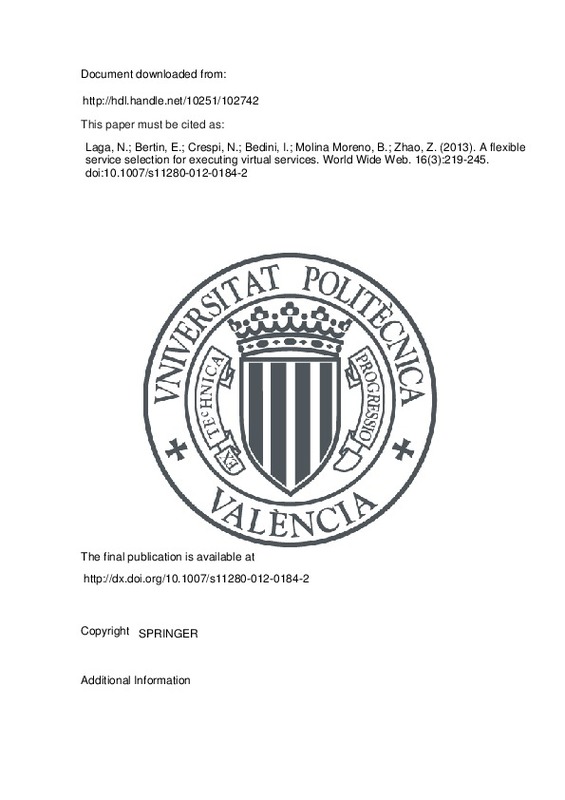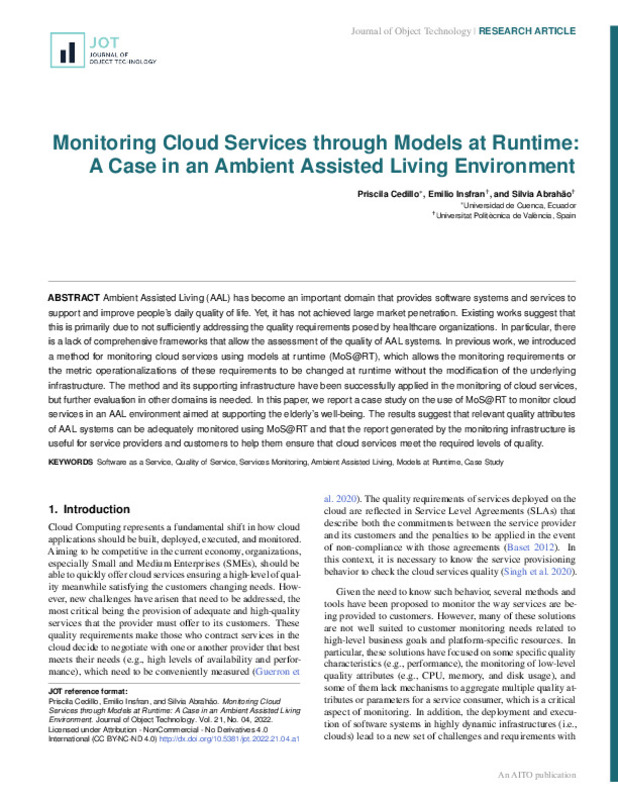JavaScript is disabled for your browser. Some features of this site may not work without it.
Buscar en RiuNet
Listar
Mi cuenta
Estadísticas
Ayuda RiuNet
Admin. UPV
Definition of The Service Unit Concept and application of The Service Unit to address SDG 3
Mostrar el registro sencillo del ítem
Ficheros en el ítem
| dc.contributor.advisor | Santamarina Siurana, Mª Cristina
|
es_ES |
| dc.contributor.advisor | Pizzinini, Clemens
|
es_ES |
| dc.contributor.author | Cuñat Rausell, Celia
|
es_ES |
| dc.date.accessioned | 2023-10-24T12:58:35Z | |
| dc.date.available | 2023-10-24T12:58:35Z | |
| dc.date.created | 2023-09-11 | |
| dc.date.issued | 2023-10-24 | es_ES |
| dc.identifier.uri | http://hdl.handle.net/10251/198701 | |
| dc.description.abstract | [ES] El sector agrícola en África está creciendo económicamente y situándose en las cadenas de valor internacionales. Sin embargo, las zonas rurales subsaharianas no están siguiendo el mismo ritmo de crecimiento económico que las urbanas, debido a la falta de acceso a los servicios por la insuficiencia o inexistencia de infraestructuras, la escasez de recursos o las limitaciones geográficas. El proyecto aCar Mobility pretende ofrecer nuevas soluciones de transporte eléctrico en las regiones rurales de África que superen los obstáculos para mejorar la oferta de servicios mediante la implantación de Servicios Basados en Vehículos (Vehicle based Services), definidos como "servicios en los que la participación de un vehículo es crucial para la entrega de valor". En la búsqueda continua de nuevos mercados emergentes e innovaciones tecnológicas, los fabricantes de vehículos reflexionan sobre las normas y prácticas existentes. Las tendencias actuales de innovación y digitalización en la industria del automóvil muestran que los fabricantes de vehículos están cambiando sus propuestas de valor hacia una perspectiva más integradora y colaborativa con el cliente. Los VbS implementan la visión centrada en el cliente y logran superar los obstáculos de accesibilidad espacial ofreciendo servicios directamente a las personas. Las VbS pueden utilizarse para diferentes operaciones con el objetivo final de alcanzar los Objetivos de Desarrollo Sostenible (ODS). Las organizaciones de la ONU, como ACNUR, ayudan a las personas marginadas promoviendo los procesos de desarrollo social y económico. Al atender sus necesidades, las organizaciones contribuyen a la consecución de los ODS. Para personalizar y parametrizar la aCar de acuerdo con los requisitos funcionales del servicio, debe establecerse una Unidad de Servicio (SU) para el servicio. La SU representa la propuesta de valor del usuario del aCar. El objetivo de este trabajo es definir el concepto de Unidad de Servicio, que se derivará de la Unidad Funcional. El marco se aplicará para obtener SUs para el ODS 3: Garantizar una vida sana y promover el bienestar para todos a todas las edades. Basándose en los conocimientos existentes sobre la unidad funcional presentados en el estado del arte, la unidad funcional se define como la descripción cuantificada del rendimiento de los sistemas de productos, para su uso como unidad de referencia y describe y cuantifica aquellas propiedades del producto, que deben estar presentes para que se produzca una sustitución. Esta amplia investigación sobre la unidad funcional se aplicará para desarrollar la definición de la unidad de servicio siguiendo los pasos descritos en las metodologías de definición de conceptos. Para hacer operativo el concepto y aplicar el marco, se obtendrán unidades de servicio con el fin de evaluar el Objetivo de Desarrollo Sostenible 3 (ODS 3). Para ello, se llevará a cabo una evaluación exhaustiva de los enfoques existentes para abordar las metas esbozadas en el ODS 3 y adaptarlos para alinearlos con el concepto de unidad de servicio y adecuarlos a un sistema basado en vehículos. Por último, las unidades de servicio potenciales se someterán a un análisis de costes, en el que se compararán para identificar la unidad de servicio más adecuada para cada objetivo. Este análisis ayudará a evaluar la viabilidad económica de cada unidad de servicio y a seleccionar la que mejor se ajuste a las metas y objetivos generales del marco, garantizando una asignación eficiente de los recursos para abordar las metas del ODS 3. El proceso mencionado dará lugar a la creación de una base de datos exhaustiva de unidades de servicio que aCar podrá utilizar eficazmente para prestar servicios específicos a la población rural de África en consonancia con el ODS 3. Esto ejemplifica el potencial de las VbS para superar los retos existentes que impiden a las zonas rurales de África acceder a los servicios básicos y alcanzar los objetivos establecidos en | es_ES |
| dc.description.abstract | [EN] The agricultural sector in Africa is economically growing and placing itself in the international value chains. However, rural sub-Saharan areas are not following the same economic growth as urban areas, due to the lack of access to services given by insufficient/non-existent infrastructure, scarceness of resources, or geographical constraints. The aCar Mobility project aims to offer new solutions of electric transport in rural regions of Africa that overcome the restrictions to enhance the supply of services by implementing Vehicle-based Services (VbS), defined as ¿services in which the involvement of a vehicle is crucial for the value delivery¿. In the continuous search for new emerging markets and technology innovations, vehicle manufacturers reflect on exiting norms and practices. Current innovation and digitalization trends in the automotive industry show that vehicle manufacturers are shifting their value propositions towards a more customer integration and collaborative perspective. VbS implement the customer-centric view and attain to overcome spatial accessibility obstacles by offering services directly to people. VbS can be used for different operations with the final objective of achieving Sustainable Development Goals (SDGs). UN organizations, such as UNHCR help marginalized people by promoting the social and economic development processes. By addressing their needs, the organizations contribute to accomplishing the SDGs. In order to customise and parametrise the aCar according to the service¿s functional requirements, a Service Unit (SU) for the service must be established. The SU represents the value proposition of the user of the aCar. The objective of this work is to define the concept of the Service Unit, that will be derived from the Functional Unit. The framework will be applied to obtain SUs for SDG 3: Ensure healthy lives and promote well-being for all at all age. Based on the existing knowledge about the functional unit presented in the state of the art, the functional unit is defined as the quantified description of the performance of the product systems, for use as reference unit and describes and quantifies those properties of the product, which must be present for a substitution to take place. This extesive research on the functional unit will be applied to develop the definition of the service unit following the steps described in concept defiing methodologies. To operationalize the concept and apply the framework, service units will be obtained for the purpose of assessing Sustainable Development Goal 3 (SDG 3). This will involve conducting a comprehensive evaluation of existing approaches to addressing the targets outlined in SDG 3 and adapting them to align with the service unit concept and suit a Vehicle-based System. Finally, the potential service units (SUs) will be subjected to a cost analysis, wherein they will be compared to identify the most appropriate SU for each target. This analysis will help in evaluating the economic viability of each SU and selecting the one that best aligns with the overall goals and objectives of the framework, ensuring efficient allocation of resources for addressing the targets in SDG 3. The aforementioned process will result in the creation of a comprehensive database of service units that can be effectively utilized by the aCar to provide targeted services to the rural population of Africa in alignment with SDG 3. This exemplifies the potential of VbSs to overcome the existing challenges that hinder rural areas in Africa from accessing basic services and achieving the goals set in the 2030 Agenda for Sustainable Development. By leveraging the database of service units, the aCar can contribute towards bridging the gap and facilitating sustainable development in these underserved areas of Africa. | es_ES |
| dc.format.extent | 135 | es_ES |
| dc.language | Inglés | es_ES |
| dc.publisher | Universitat Politècnica de València | es_ES |
| dc.rights | Reconocimiento (by) | es_ES |
| dc.subject | Unidad funcional | es_ES |
| dc.subject | Unidad de Servicio | es_ES |
| dc.subject | Servicios basados en Vehículos | es_ES |
| dc.subject | Evaluación del ciclo de vida | es_ES |
| dc.subject | Objetivos de Desarrollo Sostenible | es_ES |
| dc.subject | África subsahariana | es_ES |
| dc.subject | Servicios | es_ES |
| dc.subject | Definición operativa | es_ES |
| dc.subject | Metodologías de definición de conceptos | es_ES |
| dc.subject | Análisis de costes | es_ES |
| dc.subject | Functional Unit | es_ES |
| dc.subject | ServiceUnit | es_ES |
| dc.subject | Vehicle-based Services | es_ES |
| dc.subject | Life cycle Assessment | es_ES |
| dc.subject | Sustainable Development Goals | es_ES |
| dc.subject | Sub-Saharan Africa | es_ES |
| dc.subject | Services | es_ES |
| dc.subject | Operational definitions | es_ES |
| dc.subject | Concept definition methodologies | es_ES |
| dc.subject | Cost analysis | es_ES |
| dc.subject.classification | INGENIERIA DE LA CONSTRUCCION | es_ES |
| dc.subject.other | Máster Universitario en Ingeniería Industrial-Màster Universitari en Enginyeria Industrial | es_ES |
| dc.title | Definition of The Service Unit Concept and application of The Service Unit to address SDG 3 | es_ES |
| dc.title.alternative | Definición del Concepto Unidad de Servicio y aplicación de la Unidad de Servicio para abordar el ODS 3 | es_ES |
| dc.title.alternative | Definició del Concepte Unitat de Servei i aplicació de la Unitat de Servei per a abordar el ODS 3 | es_ES |
| dc.type | Tesis de máster | es_ES |
| dc.rights.accessRights | Abierto | es_ES |
| dc.contributor.affiliation | Universitat Politècnica de València. Departamento de Ingeniería de la Construcción y de Proyectos de Ingeniería Civil - Departament d'Enginyeria de la Construcció i de Projectes d'Enginyeria Civil | es_ES |
| dc.contributor.affiliation | Universitat Politècnica de València. Escuela Técnica Superior de Ingenieros Industriales - Escola Tècnica Superior d'Enginyers Industrials | es_ES |
| dc.description.bibliographicCitation | Cuñat Rausell, C. (2023). Definition of The Service Unit Concept and application of The Service Unit to address SDG 3. Universitat Politècnica de València. http://hdl.handle.net/10251/198701 | es_ES |
| dc.description.accrualMethod | TFGM | es_ES |
| dc.relation.pasarela | TFGM\157267 | es_ES |
Este ítem aparece en la(s) siguiente(s) colección(ones)
-
ETSII - Trabajos académicos [10404]
Escuela Técnica Superior de Ingenieros Industriales









